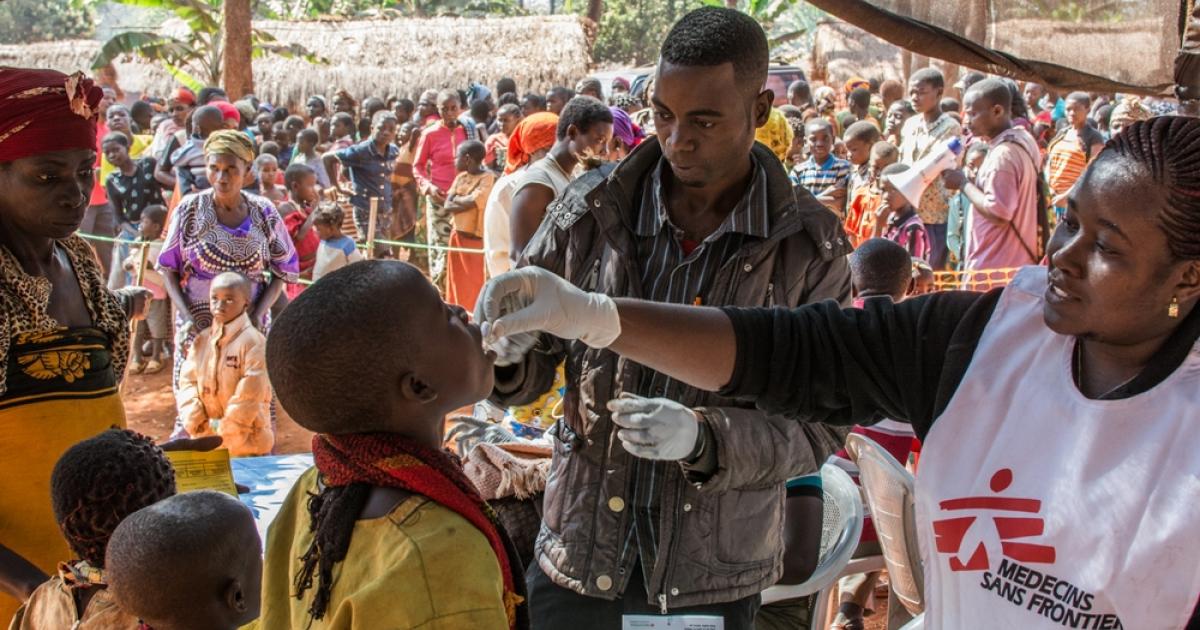In the modern world of connectivity the humanitarian crisis often crosses boundaries, impacting millions of people worldwide. In the midst of these issues, one organization stands out because of its unwavering determination to add medical treatment for the remotest and prone to conflict areas: Doctors Without Borders. This article explores the incredible journey, philosophy as well as the challenges and significance on the world of Doctors Without Borders (Medecins Sans Frontieres, MSF), shedding the light on their unmatched contribution to the global health system.
Who Are Doctors Without Borders?
Doctors Without Borders, or Medecins Sans Frontieres (MSF) in French is a global humanitarian medical organization that is known for its impartial and uncompromising method of providing emergency medical aid to those afflicted by war, epidemics or natural disasters. It also assists people who are exclusion from health care. It was founded in 1971. MSF is present in more than 70 countries, offering medical assistance when it’s most needed, typically in areas where no one other organization would go.
History and Evolution
The genesis of Doctors Without Borders can be traced to the civil conflict in Nigeria in the year 1968, when a group of journalists and doctors were witness to the devastation of war on civilians. Inspired by the Red Cross’s ideals of impartiality and neutrality the group of individuals dreamed of the creation of a new organisation that would place medical needs over religious, political or economic concerns.
In the year 1971, this dream was realized with the creation the organization Medecins Sans Frontieres by a group of French journalists and doctors, comprising Bernard Kouchner and Jacques Beres. The organization’s charter was a strong statement of the importance of impartiality, independence, and neutrality, putting it apart from other traditional humanitarian aid organizations.
Since its founding, MSF has grown exponentially and has responded to emergencies around the world and urging governments and institutions to prioritise medical aid in accordance with humanitarian needs rather than based on political concerns.
Principles and Values
At the heart of MSF’s identity are the fundamental principles that make up MSF:
- Independence MSF is independent of religious, political or military agenda and is able to prepare assistance solely based on medical requirements.
- Transparency: MSF provides medical assistance to those who are in the greatest need without regard to race, religion or even political affiliation.
- Non-biasing: MSF is not a party to engage in conflict and maintains dialog with the various parties in order to assure secure access to those who are in need.
These guidelines guide MSF’s operations and decision-making procedures, ensuring that their aid to the poor is ethical, efficient and in line with their mission.
Humanitarian Crisis Response
MSF’s quick response to crises affecting the human cause has earned the organization worldwide appreciation and recognition. When it comes to responding to natural disasters such as tsunamis and earthquakes, or to man-made crises like armed conflict and epidemics MSF’s teams are frequently among the first on field, providing life-saving medical assistance for those who are in desperate need.
One of MSF’s greatest contributions is the way it responds to epidemics such as the HIV/AIDS epidemic, Ebola as well as cholera epidemics. The expertise of MSF in infectious disease control and management has been crucial in stopping outbreaks and saving thousands of lives.
Medical Operations and Field Work
MSF runs a wide collection of field projects around the globe, which are staffed by medical professionals from the community as well as local personnel. The projects vary from portable clinics located in rural villages to massive hospitals in war zones, offering a variety of medical services. These include surgery and primary healthcare, mental health assistance and maternal and infant health services.
Medical teams are often faced with challenging circumstances, such as security as well as a lack of infrastructure and access to basic equipment. Despite these difficulties, MSF remains committed to helping those who are in need, and giving them the medical treatment they need.
Challenges Faced
Working within some of the most difficult situations, MSF faces numerous obstacles in providing humanitarian assistance. These obstacles include:
- Security Risks MSF personnel often work in dangerous and unsafe areas and are at risk of the lives of their colleagues to bring medical aid.
- Political Obstacles Armed and government-controlled groups could hinder MSF’s access to people in need, which could compromise the ability of MSF to distribute assistance definitely.
- resource limitations: MSF depends heavily upon the generosity of donors and volunteers, which means they are facing staff shortages and financial limitations that could affect their operation.
Impact and Recognition
The impact of MSF on the world’s health and humanitarian assistance can’t be overemphasized. Over the years, MSF has treated millions of patients, vaccinated kids against deadly diseases, offered nutrition assistance to communities suffering from malnutrition and lobbied for better access to healthcare for those living in remote regions.
Beyond its medical services, MSF plays a crucial role in spreading awareness of human-rights crises and fighting for the rights of people that are impacted by conflicts and natural disasters. MSF’s dedication in transparency and accountability have earned its trust from donors, partners, as well as the communities that it serves.
Conclusion
In the end, Doctors Without Borders exemplifies the potential of humanitarian action to ease the suffering of people and bring dignity when faced with hardship. With its unwavering dedication to the ethical conduct of medical professionals, its integrity, and independence, MSF continues to be a source of hope to millions across the globe.
In an increasingly complicated and interconnected globe The mission in the work of Doctors Without Borders serves as an example of the unending power of compassion and cooperation in healing the places where humanity suffers the most. By donating to MSF’s cause it is not just about saving lives, but also promote the basic principle of human rights and justice to all.
